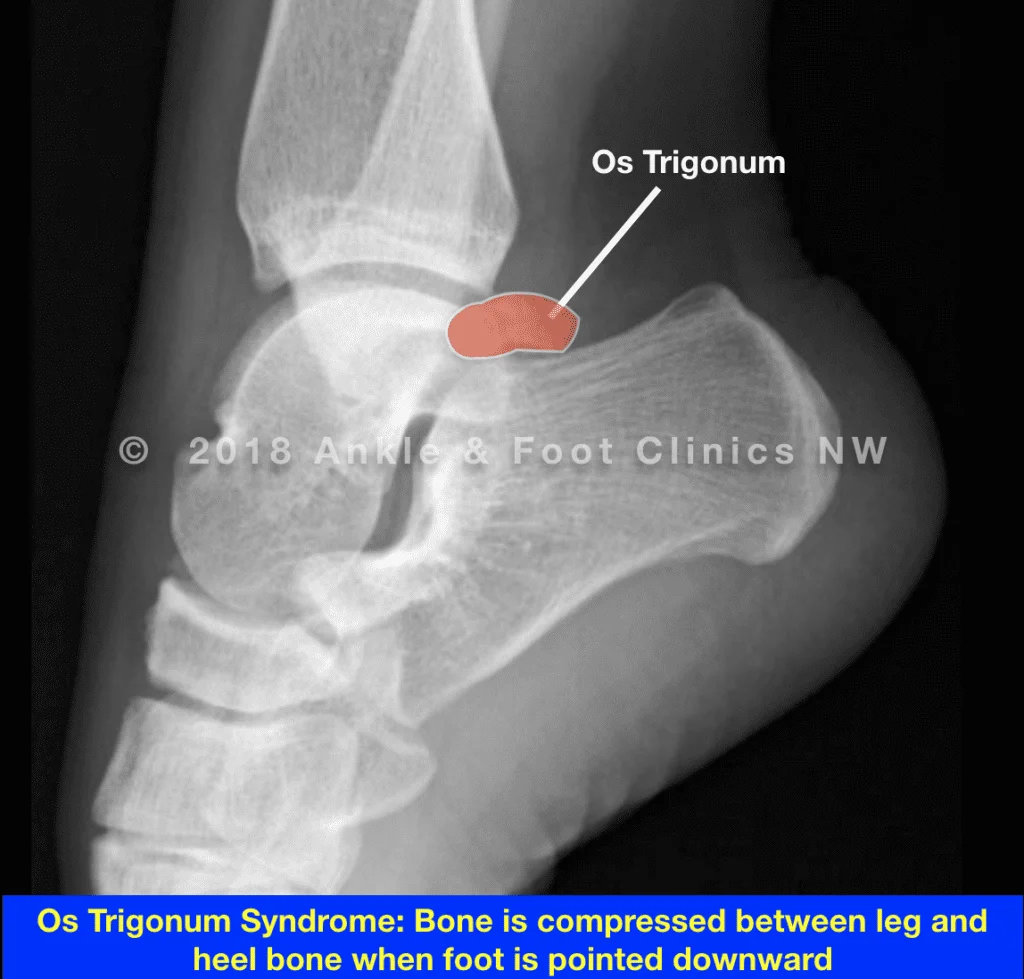Table of Contents
What is Os Trigonum Syndrome?
Ankle pain, while initially thought of as an issue for athletes, can affect anyone at anytime. Simple, everyday activities, such as walking or running on an uneven surface, have the possibility of causing serious harm to one’s ankle. That is, however, not to discount athletic injuries; in fact, half of all ankle sprains are inflicted during an athletic activity. The most common causes of ankle injuries include tripping or falling, landing awkwardly after jumping, a sudden impact such as a car crash, or twisting, rolling, and rotating of the ankle.

Diagnosis
Clinical symptoms and the X-ray finding of an os trigonum strongly suggest os trigonum syndrome. Sometimes an MRI or a diagnostic injection may be recommended.
Nonsurgical Treatment
- Rest
- Ice
- Oral medications-Nonsteroidal anti-inflammatory drugs (NSAIDs), such as ibuprofen, can help relieve the pain and inflammation.
- Short period of immobilization in a cast or cast boot.
Surgical Treatment
In patients who have no improvement after conservative treatment, removing the os trigonum surgically can be considered. This can be performed open or as an arthroscopic procedure. Usually a period of non-weightbearing for 2 weeks after surgery is required until the skin incision heals. Physical therapy is important during the rehabilitation phase post operatively to ensure that scar tissue does not form behind the ankle joint.
What to Do Next?
If you or someone you know is experiencing pain or discomfort in the ankle region, seek out the help of a podiatrist for a proper diagnosis and treatment regime.
Contact us today to schedule an appointment.


